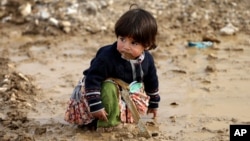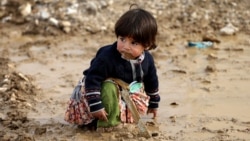The United Nations Refugee Agency calls the crisis in Syria “the biggest humanitarian emergency of our era”. Since the Syrian civil war began in 2011, the civilian population has borne the brunt of the violence. To escape the violence, more than 3.3 million people have fled to neighboring countries.
Of these, 10 percent, or roughly 300,000 people, are in dire need of resettlement to other countries, according to the Office of the UN High Commissioner for Refugees, or UNHCR.
28 countries, including the United States, have responded to UNHCR’s recent call to open their doors for those most in need, pledging to create an estimated 100,000 opportunities for resettlement of Syrian refugees.
“For Syrians and for other victims of violence and persecution – resettlement offers not just an escape, but a chance to start over,” said Assistant Secretary of State for Population, Refugees, and Migration, Anne C. Richard.
The United States is the world leader in refugee resettlement, annually resettling more than all other countries combined. “The United States accepts the majority of all UNHCR referrals from around the world,” said Assistant Secretary Richard.
“Last year, we reached our goal of resettling nearly 70,000 refugees from nearly 70 countries. And we plan to lead in resettling Syrians as well. We are reviewing some 10,000 recent UNHCR referrals from Syria. We are receiving roughly a thousand new referrals each month, and we expect admissions from Syria to surge in 2015 and beyond,” she said.
Since the violence started in Syria in March 2011, the United States has provided over $3 billion worth of aid to support refugees in neighboring countries and communities who have generously agreed to host them. This aid will continue, even as we work to accelerate our refugee resettlement program.
“War’s true cost is measured in human suffering. Resettlement can help – one person at a time – to bring that suffering to an end,” said Assistant Secretary Richard. “Resettlement cannot replace what refugees have lost or erase what they have endured. But it can renew hope and help restart lives. That can make all the difference.”






